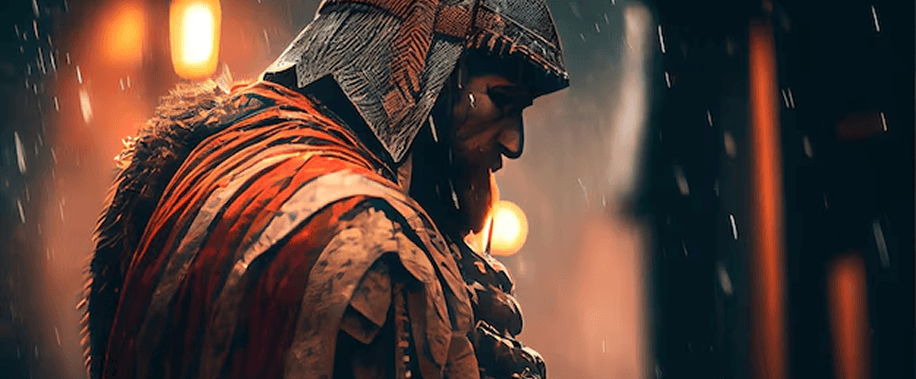
MMORPG Game Development
Creating Immersive MMORPG Worlds with Cutting-Edge Development
We specialize in building expansive, interactive, and highly engaging MMORPG experiences that captivate players worldwide.

12+
Years of Expertise
50+
Projects Completed
10M+
Game Downloads

Comprehensive MMORPG Game Development Services
Our professional staff is devoted to providing the best of the best in MMORPG development with fluid gameplay, vibrant worlds, and pleasant social experience.
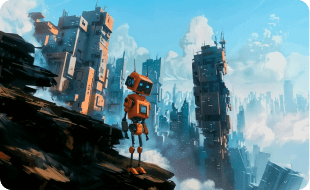
Custom MMORPG Development
We specialize in creating ‘customer-specific’ MMORPGs with complex plot, the cast of characters and interactive environment.

Game World Design & Environment
The game environments created by our designers are open and visually impressive with numerous locations like cities and landmarks, as well as objects that players can interact with.

Multiplayer Networking Solutions
From a networking side we create well-organized and scalable networks for our games that provide low-latency gaming.
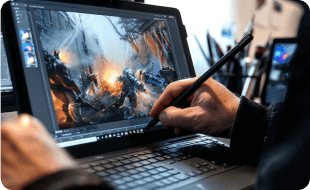
Cross-Platform Compatibility
Our games are compatible with PC, console, and mobile devices, allowing for a broader range of players to have fun.
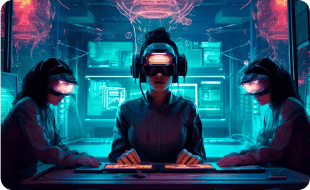
LiveOps & Continuous Updates
Players can avail of LiveOps services with continuous updates, patches, new contents and help to make the players always coming back.

Character & NPC Development
Our team designs unique playable characters and AI-driven NPCs that enhance the game’s realism and interaction.

In-Game Economy & Monetization
We develop in-depth in-game economies, marketplaces, and monetization strategies, including subscriptions, microtransactions, and rewards.

Social & Guild Systems
We integrate social features, guild systems, and real-time communication tools to enhance player interaction and community engagement.

High-Quality 3D Art & Animation
We offer remarkably realistic 3D models, characters’ animations and captivating cinematic scenes for effective narrative.
The MMORPG Game Advantage
Revolutionizing MMORPG Game Development
The MMORPG industry is evolving rapidly, offering developers new opportunities to create expansive, immersive virtual worlds. The global online gaming market continues to grow, driven by advancements in AI-driven NPCs, real-time multiplayer networking, and sophisticated in-game economies.
Next-Gen MMORPG Features








Key Stages in the MMORPG Game Development Process
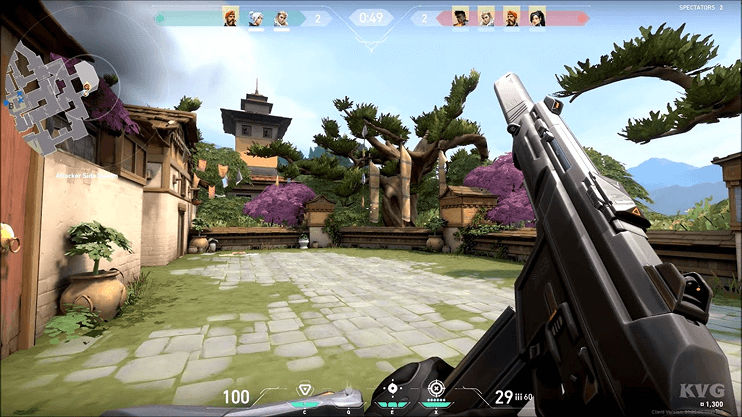

Build the Ultimate MMORPG Experience!
Create an expansive, immersive online world with our MMORPG game development services. Let’s turn your vision into reality—connect with us today!
Get Started

Getting Started with MMORPG Game Development

What Are the Essential Features of a Successful MMORPG Game?
MMORPGs are vast and intricate games whose dynamics involve mechanics of extended play, social interactivity, and character advancement to sustain player interest. The key factors that define an ideal MMORPG include the kind of environment that is created, the incorporation of multiplayers, and the feeling that is instilled into the players to ensure they continue playing for an extended period.
Another important feature that should be present in an MMORPG is the world in which the game takes place. In other words, a good MMORPG has a specific setting, detailed storyline, various and exotic territories and locations.
The world should be active, open to having events happening which the character can influence, contents that are ever changing so as to keep the player interested. Adding open-world exploration, day and night cycles, and extreme weather elements bring the feel of realism in the game making the players to have the remarkable feeling of being part of the real universe where they are playing.
Another important factor associated with MMORPGs, is the aspect of multiplayer interaction. While single player games are predominant single characters, MMORPGs rely on players to become comrades, friends and engage in teamwork formation of guilds, Coalitions, etc and large scale fights. Accessibility to chat, players organizations, and shared missions help players to feel that they are not alone in the game.
PvP combat as well as guild and alliance system provides opportunities to cooperate, to challenge oneself and others in combat. Engaging questlines and storytelling deliveries should be regarded as one of the major puzzles for creating a truly exciting MMORPG. Incorporating characters and real world decisions in a single story makes the uniqueness of the game much more enhanced.
Instead of the numerous and simple fetch quests, engaging MMORPGs contain various kinds of missions, such as puzzling, faction-based missions, and changes in the games’ world. We believe that the living stories, according to the player's actions, can make the world come alive.
Another two areas of particular importance in an MMORPG are the coherence of the game mechanics between the game itself, add-ons and from one server to another. Lagging, disconnections and low-performance rates diminish the players’ experience.
Well designed, first-rate game engine, the network and server architecture, and network play all combine to facilitate smooth game play by the number of players in the hundreds. As the size of players joining the game increases, the developers should ensure that performance is enhanced progressively.
How Can Developers Ensure Long-Term Success for an MMORPG?
Designing an MMORPG is not an easy task to accomplish, but sustain an MMORPG in the long run is even more difficult. As is common with many other MMORPGs, many are developed with the ultimate aim of attracting as many players at the start but lose most of them in the long run. Developers should pay much attention to content, technical issues, players’ money and resources, and constant updates to keep video games interesting for years.
- Engaging and Evolving Game World
- Balanced and Rewarding Progression System
- Strong Social and Multiplayer Features
- Player-Driven Economy and Trading Systems
- Live Events, PvP, and Competitive Play
One of the most important factors in an MMORPG’s longevity is an immersive, ever-evolving world. Players must feel like they are part of a living, breathing universe that changes over time.
Dynamic events, seasonal updates, and lore-driven expansions can keep the game fresh. Regular world updates, such as new regions, dungeons, and enemy factions, prevent stagnation and encourage exploration.
An effective progression system is very important for retention of players in the game platform. Growth should always be a reward but not at the cost of only having overwhelming amounts of grinding.
Tasks and missions to achieve should include leveling up, gaining of skills and expertise, rare items, and involve crafting. It should also have tangible goals, sense of progression, classes, abilities and achievements that make the people playing the game feel they have achieved something.
MMORPGs thrive on player interaction. Guild elements that are incentives for community activities, focusing on parties, cooperative gameplay, and strategizing contribute to cooperation.
These features as group dungeons, world bosses, and alliance wars are effective in the game because they increase interactivity by continuously forming groups. It should also consist of the efficient and effective in-game communication tools such as the; chat channels, voice communication, and forums for the players.
A thriving in-game economy helps keep players invested. Developers should create a balanced economic system where players can trade items, craft valuable goods, and engage in auction houses or marketplaces.
Limited resources, crafting specializations, and player-run shops can create a sense of economic depth that encourages long-term play. Inflation control and anti-exploit measures must also be in place to maintain balance.
Introducing live events and competitive gameplay elements ensures ongoing engagement. Seasonal events, limited-time challenges, and PvP tournaments can keep the game exciting.
Ranked PvP systems, battlegrounds, and faction wars give competitive players a reason to stay invested. Developers should also create special rewards, leaderboards, and exclusive cosmetics for top players.
What Are the Key Challenges in MMORPG Game Development and How Can They Be Overcome?
To design and create an MMORPG is one of the most challenging projects in the sphere of video games. These are games that can only be played on a vast scale, involve interaction among multiple players at a time and need updates as and when.
Often, many MMORPG projects do not come to successful conclusions due to technical problems, lack of users on the part of consumers or their economic inactivity or inability to expand. Learning these issues and how to mitigate them is extremely important for the establishment of MMORPGs.
- Server Scalability and Stability
- Use cloud-based solutions to dynamically scale server capacity based on player load.
- Implement distributed server architecture to balance player traffic efficiently.
- Regularly conduct stress testing before major updates to identify potential weak points.
One of the biggest challenges in MMORPG development is ensuring that servers can handle thousands of players simultaneously. Lag, crashes, and connection issues can ruin the gaming experience.
Solution:
- Engaging and Expanding Game Content
- Use procedural generation techniques for environments and quests to reduce manual workload.
- Plan for regular expansions, seasonal events, and live updates to keep the world evolving. Encourage player-driven storytelling and emergent gameplay through open-world mechanics.
- Regularly conduct stress testing before major updates to identify potential weak points.
Players expect MMORPGs to offer vast, immersive worlds filled with engaging quests, lore, and challenges. However, creating enough content to keep players entertained long-term is difficult.
Solution:
- Combat System Balance and Fairness
- Regularly analyze combat data and make adjustments through patches and updates.
- Provide diverse playstyles so no single strategy dominates. Involve the player community in beta testing and feedback collection to fine-tune combat mechanics.
An MMORPG’s combat mechanics must be well-balanced to ensure fair PvP (Player vs. Player) and PvE (Player vs. Environment) experiences. Unbalanced classes or overpowered items can lead to frustration and loss of player trust.
Solution:
- Player Retention and Community Building
- Implement strong social features such as guilds, in-game chat, and collaborative events.
- Offer meaningful long-term goals, such as ranked PvP, raid progression, and achievements.
- Provide incentives for returning players, such as login rewards and exclusive content.
Even if an MMORPG has an exciting launch, keeping players engaged long-term is a challenge. Many games see a drop in user activity after the first few months.
Solution:
How Can You Ensure a Successful Launch for an MMORPG Game?
Launching an MMORPG (Massively Multiplayer Online Role-Playing Game) is a highly complex process that involves more than just finishing development. A successful launch requires thorough testing, marketing, community engagement, and technical readiness to handle a large influx of players.
Many MMORPGs fail at launch due to server instability, lack of engaging content, or poor communication with players. Ensuring a smooth launch is crucial to building long-term success for your game.
- Preparing the Game for Launch
- Building Hype and a Community Before Release
- Ensuring a Balanced and Engaging Gameplay Experience
- Implementing a Strong Monetization Model
- Ensuring Smooth Server Performance and Scalability
- Engaging with Players After Launch
For the game to be launched with ease, it requires to be fully optimized and refined to perfection. This situation is not surprising, as many MMORPGs have been reported to have crucial bugs or server issues in the first days of release that cause negative reviews and maintenance of players.
Every MMORPG strongly relies on the active and stable player base. Despite the game initially having many elements that play well and feel well made, without the appropriate marketing and community developments, few people get attracted to the game and fewer can be retained in the game.
When an MMORPG feels stale, skewed, or simply in its beta phase, players will disperse to a different game. This is an elaboration of the previous point in which a good game must be engaging, must have progression, and must have variety and balance.
Monetization should support the game’s sustainability without alienating players. A poorly planned system can lead to accusations of pay-to-win mechanics and player dissatisfaction.
The most common problem facing an MMORPG game at the time of its launch is the instability of the game servers. An online game that instabilities and freezes or even disconnects frequently will not be attractive for users to stay long.
A game’s launch is just the beginning. Ongoing engagement with the community ensures continued success and growth.
A game’s launch is just the beginning. Ongoing engagement with the community ensures continued success and growth.
There is no fixed figure which can be estimated as the actual cost of MMORPG Development since the cost differs depending on factors like the kind of game, features that are to be incorporated as well as time taken in production of the game. As compared to other games, MMORPGs have high pre-production costs due to the need to conceptualize a vast world, maintain server farms, and constantly patch the game and release new content.
Key Cost Factors in MMORPG Development
- Game Design and Planning
- Concept creation, storyline development, and character design require skilled writers and artists.
- Cost: $10,000 – $50,000, depending on the depth of the world and narrative.
- Game Development
- MMORPGs need large, seamless open worlds, complex mechanics, and multiplayer capabilities.
- Development costs range from $100,000 for a basic version to several million dollars for AAA-quality games.
- Server and Network Infrastructure
- Reliable servers are essential for smooth gameplay, handling thousands of concurrent players.
- Cloud-based or dedicated servers can cost $5,000 – $50,000 per month.
- Graphics and Animation
- High-quality 3D models, animations, and special effects significantly increase costs.
- Costs range from $50,000 for simpler art styles to $500,000+ for high-end graphics.
- Testing and Quality Assurance
- Bug fixing, stress testing, and player feedback adjustments are essential for a polished game.
- Estimated cost: $20,000 – $100,000.
- Marketing and Launch
- Successful MMORPGs require aggressive marketing, influencer partnerships, and promotional events.
- Marketing costs can range from $50,000 to several million dollars.
Final Cost Estimate
A small-scale MMORPG can cost $500,000 – $1 million, while a high-end, AAA MMORPG may exceed $10 million – $100 million total development expenses. Ongoing server maintenance, live updates, and expansions add further costs.
FAQ
Answers to the most frequent question.

Bring Your MMORPG Vision to Life With us!
Let’s craft a captivating, scalable, and engaging world that keeps players hooked for years—partner with us today!









